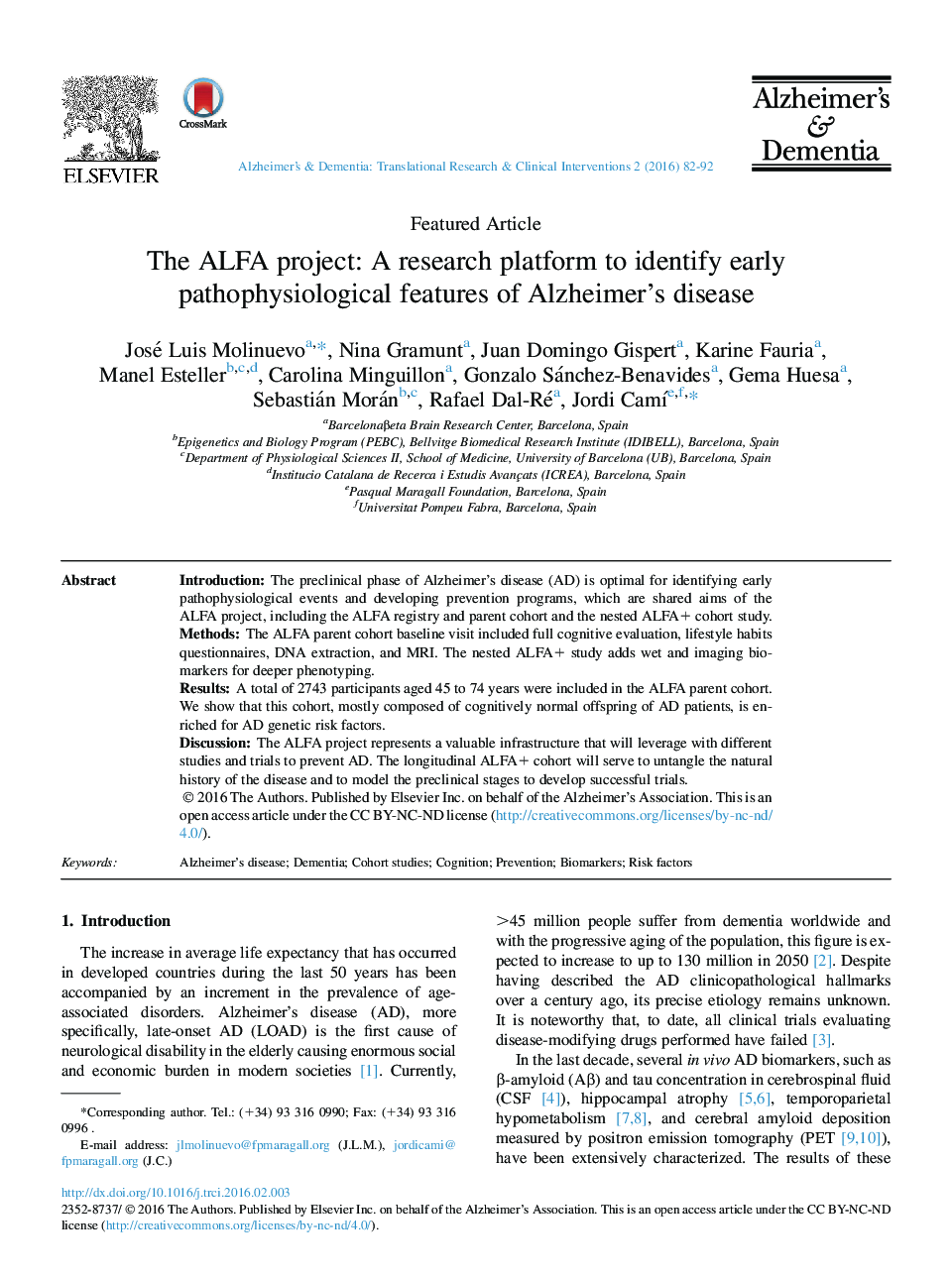| Article ID | Journal | Published Year | Pages | File Type |
|---|---|---|---|---|
| 3032094 | Alzheimer's & Dementia: Translational Research & Clinical Interventions | 2016 | 11 Pages |
IntroductionThe preclinical phase of Alzheimer's disease (AD) is optimal for identifying early pathophysiological events and developing prevention programs, which are shared aims of the ALFA project, including the ALFA registry and parent cohort and the nested ALFA+ cohort study.MethodsThe ALFA parent cohort baseline visit included full cognitive evaluation, lifestyle habits questionnaires, DNA extraction, and MRI. The nested ALFA+ study adds wet and imaging biomarkers for deeper phenotyping.ResultsA total of 2743 participants aged 45 to 74 years were included in the ALFA parent cohort. We show that this cohort, mostly composed of cognitively normal offspring of AD patients, is enriched for AD genetic risk factors.DiscussionThe ALFA project represents a valuable infrastructure that will leverage with different studies and trials to prevent AD. The longitudinal ALFA+ cohort will serve to untangle the natural history of the disease and to model the preclinical stages to develop successful trials.
